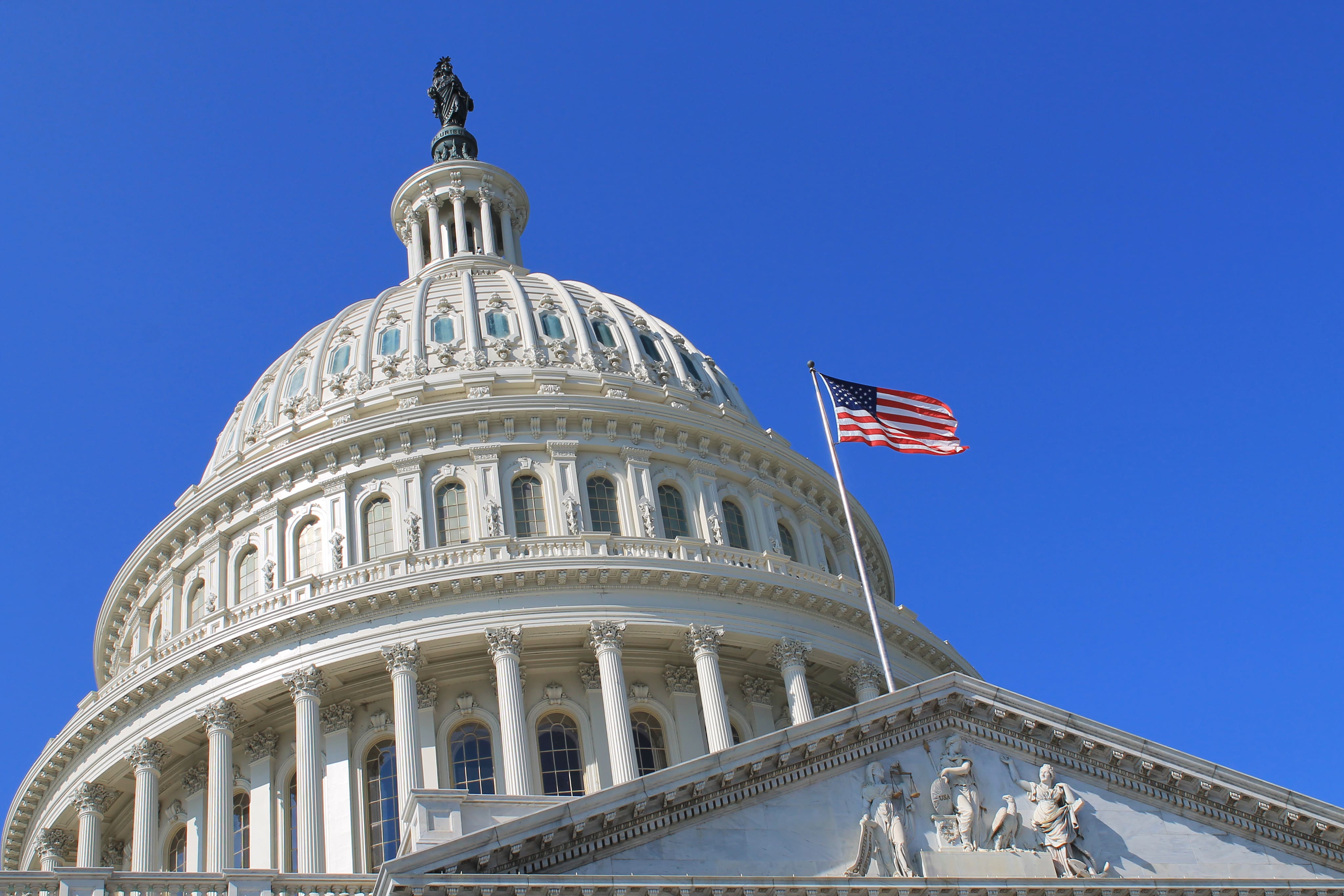7 Steps to Hosting an Absentee Vote Online
Online voting offers many advantages for organizations and election managers who want an opportunity to gather input from as many voting-eligible...

Elections come around every two to four years in the United States and despite the lengthy campaigning and voter outreach that our politicians put us through to ensure they get our votes, most states have very few options outside of in person voting or absentee ballots that are usually mailed in.
With advancements in technology our lives have become easy when it comes to doing a lot of our daily activities. This has led to a lot of conversation around online voting for our national and state elections with many being for and even more being against the idea.
Proponents emphasize the convenience, and accessibility for those who are overseas, have disabilities, or serve in the armed forces and are deployed so that their votes can be counted. Theres also the argument that results will be easier since the votes are tabulated in real time over an online portal and no counting is required.
Opponents emphasize security concerns, citing long-standing research done by universities and cybersecurity experts and a recent interagency assessment that points to online voting carrying risk of compromise.
that's not to say that we don't currently have online voting available to our citizens. we actually do! But the definition may not be what you had in mind when you ask about online voting.
Online voting takes on a different definition when it comes to national or state elections in the united states and it is allowed in more states than you would think.
Online voting for an election refers to electronically receiving and returning your ballots via email, fax, or an online portal.
Since all states allow you to receive the ballot electronically, it comes down to which state allow electronic ballot return. and your options defer depending on the state and whether you qualify for the program. here are the details:
The Military and Overseas Voters Act (MOVE) passed in 2009, requires states to enable the electronic delivery of blank ballots to voters who fall under the Uniformed and Overseas Citizens Absentee Voting Act (UOCAVA) via email, fax or an online delivery system. Each state has provided their delivery methods along with deadlines available on the Voter Assistance Guide.
Thirteen states have so far extended electronic ballot return options to voters with disabilities who may have unique challenges when it comes to voting in person or by mail.
The States were not required to provide a method for electronic ballot return under the MOVE Act and mail is the primary method of ballot return in most states and continues to be the only method for 19 of our states.
Thirty-one states, Washington, D.C., and the Virgin Islands currently allow online voting for certain voters who are typically military and their family members, anyone else living overseas, and voters with disabilities.
The table below was created through research and information gathered from The National Conference of State Legislatures (NCSL) and is the most up-to-date data on which states allow online voting and who is eligible.
|
State |
|
Fax (phone or internet) |
Online Portal |
Who Can Use Electronic Voting |
|---|---|---|---|---|
|
Alabama Ala. Code1975 § 17-11-45 |
|
|
|
|
|
Alaska AS § 15.20.066 |
|
|
|
|
|
Arizona A.R.S. § 16-543 |
|
|
|
|
|
California West's Ann.Cal.Elec.Code § 3106 |
|
|
|
UOCAVA voters, only if overseas or activated within six days of the election |
|
Colorado C.R.S.A. § 1-5-706, § 1-7.5-115, § 1-8.3-113, 8 CCR 1505-1:16 |
|
|
|
Note: In some instances, Colorado allows voters experiencing a personal emergency or natural disaster to use electronic ballot return. |
|
Delaware 15 Del.C. § 5525, § 5503 |
|
|
|
|
|
District of Columbia |
|
|
|
|
|
Florida West's F.S.A. § 101.697 |
|
|
|
UOCAVA voters, if living outside the U.S. |
|
Hawaii HRS § 15-5 |
|
|
|
Note: In some instances, voters who request an absentee/mail ballot and do not receive it within five days of an election may return a ballot electronically. |
|
Indiana IC 3-11-4-6 |
|
|
|
|
|
Iowa N/A |
|
|
|
UOCAVA voters, only if located in a hostile fire area or overseas as a uniformed service member |
|
Kansas K.S.A. 25-1216 |
|
|
|
|
|
Louisiana LSA-R.S. 18:1308(A)(h)(i) |
only UOCAVA voters, and only |
|
|
UOCAVA voters Absentee voters, including voters with disabilities, only if the request is made at the time of application |
|
Maine 21-A M.R.S.A. § 783, § 809-A |
|
UOCAVA voters only |
|
|
|
Massachusetts M.G.L.A. 54 § 95 |
UOCAVA voters only |
UOCAVA voters only |
Voters with disabilities only |
|
|
Mississippi Miss. Code Ann. § 23-15-699 |
|
|
|
|
|
Missouri V.A.M.S. 115.916 |
|
|
|
UOCAVA voters, only if serving or living in a hostile fire area |
|
Montana MCA 13-21-106 |
|
|
|
|
|
Nebraska N/A |
|
|
|
UOCAVA voters, only with prior approval |
|
Nevada N.R.S. 293D.200, 293.269951 |
|
|
|
|
|
New Jersey N.J.S.A. 19:59-10 |
|
|
|
UOCAVA voters, who must also send a hard copy of the ballot via postal mail |
|
New Mexico N. M. S. A. 1978, § 1-6B-8 |
|
|
|
|
|
North Carolina N.C.G.S.A. § 163-258.10 |
UOCAVA voters only |
UOCAVA voters only |
|
|
|
North Dakota NDCC, 16.1-07-24 NDCC, 16.1-07-08 (3)" |
|
|
|
Voters with disabilities |
|
Oklahoma 26 Ok.St.Ann. § 14-145 |
|
|
|
|
|
Oregon O.R.S. § 253.690 |
|
|
(in two counties only) |
UOCAVA voters |
|
Rhode Island Gen.Laws1956, § 17-20-6.1, 17-20-9 |
|
Only if the ballot |
|
Voters with disabilities |
|
South Carolina Code 1976 § 7-15-690 |
|
|
|
|
|
Texas |
|
|
|
UOCAVA voters, only if serving or living in a hostile fire area |
|
Utah U.C.A. 1953 § 20A-16-404, § 20A-3a-201, § 20A-6-103 |
|
UOCAVA voters only |
(in two counties only) |
|
|
Virgin Islands 18 V.I.C. § 665 |
|
|
|
|
|
Washington West's RCWA 29A.40.091 |
|
|
|
|
|
West Virginia W. Va. Code, § 3-3-1(c), § 3-3-5 |
UOCAVA voters only |
UOCAVA voters only |
|
.jpeg?width=5000&height=2044&name=AdobeStock_180823785%20(2).jpeg)
Despite our nation's capabilities to allow select voters to return their ballots electronically, the idea of online voting for most major elections does not sit well still with most citizens.
About 39% of Americans say they would choose to vote from their desktop or mobile device if possible, with the bulk of those in favor of online voting being under 30 years old.
While times are certainly changing to make our election and voting process more accessible, many experts believe the potential security threats of an online voting system outweigh the benefits of increased voter turnout.
There will likely be more experimenting with online voting and registration options over the next few elections as both major political parties look to increase our dismal average election turnout.
As early as 2000, the Arizona Democratic Party began offering online voting as an incentive for registered members, and the Utah GOP has done the same as recently as 2016.
There is a very slim likelihood that online voting in all 50 states will be an option in time for the next next election, but more and more states are considering online solutions for voter turnout.
Do you need online election portal for your absentee, deployed or disabled voters? eBallot has online voting solutions to assist with virtually any kind of voting event and voter database. Check out our platform's capabilities to see how it can align with your organizations needs.

Online voting offers many advantages for organizations and election managers who want an opportunity to gather input from as many voting-eligible...

We are all guaranteed the right to form associations under the first amendment and no matter which industry or common goal you are working towards,...

First things first. What exactly is SSO? SSO stands for Single Sign-On – a method of user authentication that allows a user to enter in a single set...